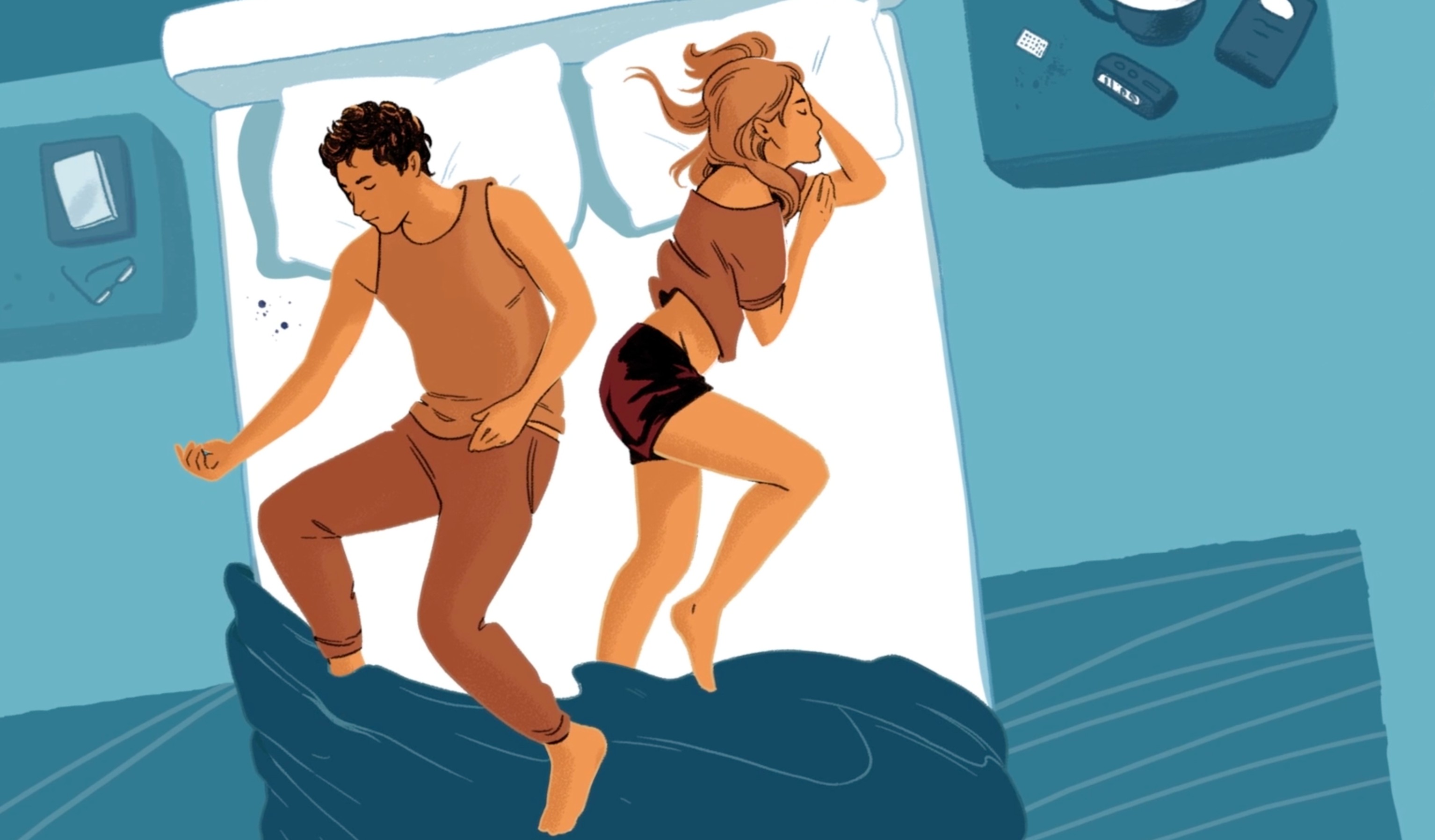Left Image: Photo by Spencer Platt via Getty Images. Right Image: Photo by ColorBlind Images via Getty Images
For decades, many people dealing with addiction have been branded with an obscene label by their own doctors: SPOS—an acronym for “subhuman piece of shit." It's hospital slang, handed down over time from attending physician to resident to intern to medical student. In a recent story for the New Yorker, Dr. Jerome Groopman described his own introduction to the label: As an intern at Harvard-affiliated Massachusetts General Hospital in the 1970s, he was proud that he had saved the life of a patient named Vinny, who had a dangerous infection spread by unclean needles. The young doctor believed it when his patient swore he’d never shoot drugs again. But the guy was back in the E.R. with another addiction-related problem in less than a month.“My supervising resident told me that I had been naïve to have any faith in Vinny’s promises; he was, in the parlance of the resident, like all addicts, an SPOS—a subhuman piece of shit.”The very existence of the label encapsulates the way America’s health care system has made physicians and people with addiction into natural enemies. While docs who have trained more recently suggest casual use of cruel medical vernacular has declined, many say the bias it reflects remains devastatingly common. And if we don’t change the structural features that create this problem, it will be almost impossible to end the overdose crisis, which is now the leading cause of death for Americans under 50.

This brutal stigma helps explain why people with addiction frequently avoid medical care—and why, as recently as 2015, only an estimated 3 percent of primary-care doctors had done the legally mandated training required to prescribe the lifesaving medication buprenorphine, a.k.a Suboxone. (And fewer than half of them were actually dishing it out.) Obviously, addiction is heavily stigmatized in society generally, in part because the whole point of criminalizing a behavior is to shame and damage the reputation of those who engage in it in order to deter others. But why does the stigma seem to be even worse among those who we expect to compassionately care for it?“I’m so sad that this is even a question,” said Dr. Esther Choo, associate professor of emergency medicine at Oregon Health and Science University, noting that it is difficult to quantify prejudice.“I’ve heard ‘addict,’ ‘junkie,’ ‘drug seeker,’” added Dr. Molly Rutherford, an addiction specialist in Louisville, Kentucky, “I’m sure it’s funny to a lot of people, but it’s also not productive in tackling an opioid epidemic.”“I don’t know if I’ve heard people use that phrase,” Dr. Adam Lake, a family physician in Lancaster, Pennsylvania, said of the SPOS label. But “I’ve heard ‘drug seeking’… and if there is any whiff of somebody seeking drugs for addiction reasons, their concerns are not treated the same way."Dr. Peter Grinspoon, a primary-care doctor at Mass General, has himself suffered from opioid addiction and told his story in a recent book, Free Refills. While he suspects use of extreme language like SPOS by doctors has declined in recent years, he thinks the prejudice remains as strong as ever. “They have the same thoughts— but not maybe the same stigmatizing nicknames,” he told me.Drug criminalization itself is a key part of the problem. Since opioids are illegal other than for medical purposes, doctors are the only legit gateway to these substances. This has extremely problematic side effects for the treatment of both pain and addiction. For one, it means that doctors risk not only losing their licenses if they fail to detect that someone is faking pain to feed addiction—but they can also face criminal charges if patients re-sell the drugs or overdose.“There’s just this sort of vague threat,” said Lake, adding that fears about licensing and criminal charges “have this really chilling effect and make us really nervous.”The fact that there is no plausible lie detector or pain detector out there means physicians who are basically too kind can wind up in trouble, even when they mean well. For instance, they can be held responsible for overdose deaths even if the patient is injecting a drug meant to be swallowed or drinking alcohol with their dose. That leads many to simply avoid treating pain with opioids, period.“It’s like, I can lose my license for treating you well,” as Lake put it. Noting that patients in addiction or pain treatment with opioids are often required to sign contracts about appropriate medication use and to be available for regular urine testing, Grinspoon inveighed, “We’re put in the role of policemen and that’s really stressful… it’s destructive to the doctor/patient relationship.”All of the physicians I interviewed also noted that in the current medical climate—where appointments are rushed and doctors are being asked to do many more things than is temporally possible—one more rule or demand can seem intolerable. “You can see why a lot of doctors say, ‘I just don’t want to deal with this,’” Grinspoon said.And because doctors have the final say on prescriptions, they can easily become targets of rage and desperation among addicted patients who believe they need the medication, no matter what.One way to solve the problem would be to reduce the perceived need to lie when addicted patients are desperate for drugs. If emergency rooms and physicians who catch people “doctor shopping” began to simply prescribe a dose of methadone or buprenorphine on the spot, there would be far less incentive to fake pain to get drugs.“Gail D'Onofrio's work has shown that initiating medically-assisted treatment for opioid use disorders in the emergency department is feasible and works,” Choo told me. “Her initial findings are being tested in a multi-center trial now.”In order for this to be most effective, patients would have to be offered access to maintenance drugs with far fewer strings attached than is typical now. In other words, both the health of addicted people and their relationship to doctors could be improved if getting access to drugs to avoid withdrawal (and reduce exposure to deadly fentanyl) did not include requirements like seeing a counselor, showing up to a clinic regularly and being at risk of being thrown out of treatment for things like using marijuana.Doctors also need a genuine safe harbor in the law when they prescribe in good faith, either in this kind of “low-threshold” addiction care or for pain. It is not the doctor’s fault if she gets fooled by someone whom she has no reason to suspect is lying, dealing or misusing drugs. People shouldn’t be held responsible for things over which they have no control.Blaming physicians for overdose deaths that occur in such situations helps no one—and simply leads doctors to hate and fear treating both pain and addiction, which reduces their ability to empathize overall.No one deserves to be “treated like an addict,” and it is outrageous that America’s medical and legal systems have created a situation in which once addiction is suspected, compassion is eliminated. There’s no other disease where, after diagnosis, doctors simply drop patients for showing symptoms, all the while calling them despicable names.And the irony is that treating addiction is far from the most difficult or hopeless task in medicine. While people in active addiction can admittedly sometimes be “hard to like,” as Rutherford put it, people in recovery tend to be quite the opposite—and given time, most people actually do recover.“Once I started doing it, it just became my passion, because it’s so rewarding to see how their lives change when they get into recovery,” Rutherford said. “That’s why we went into medicine… to help people.”Follow Maia Szalavitz on Twitter.
Advertisement

This brutal stigma helps explain why people with addiction frequently avoid medical care—and why, as recently as 2015, only an estimated 3 percent of primary-care doctors had done the legally mandated training required to prescribe the lifesaving medication buprenorphine, a.k.a Suboxone. (And fewer than half of them were actually dishing it out.) Obviously, addiction is heavily stigmatized in society generally, in part because the whole point of criminalizing a behavior is to shame and damage the reputation of those who engage in it in order to deter others. But why does the stigma seem to be even worse among those who we expect to compassionately care for it?“I’m so sad that this is even a question,” said Dr. Esther Choo, associate professor of emergency medicine at Oregon Health and Science University, noting that it is difficult to quantify prejudice.
Advertisement
Advertisement
Advertisement
